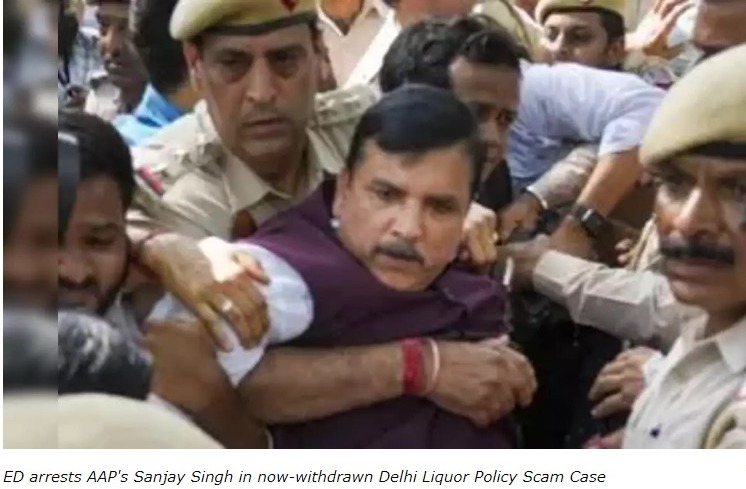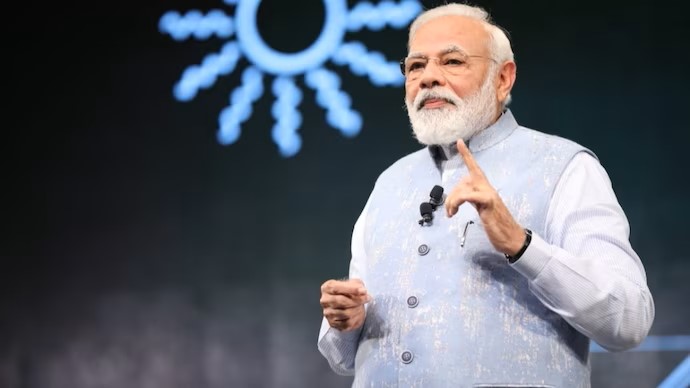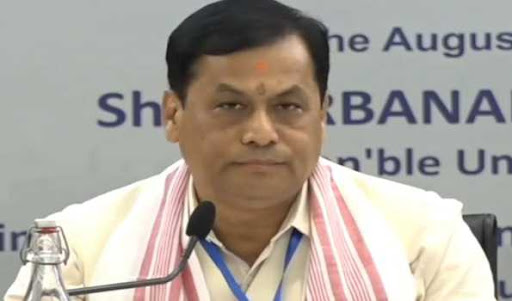The arrest of AAP MP Sanjay Singh by the Enforcement Directorate (ED) on October 5, 2023, in connection with the Delhi excise policy money laundering case, is the latest development in a case that has been plagued by allegations of corruption and collusion between government officials and private companies.
Singh is the third AAP leader to be arrested in the case, after former Delhi Deputy Chief Minister Manish Sisodia and former Delhi Public Works Department Minister Satyendar Jain.
The ED alleges that Singh was involved in a conspiracy to launder proceeds of crime generated from the Delhi excise policy scam. The agency has also alleged that Singh benefited financially from the scam.
Singh has denied all allegations and has called his arrest a political vendetta by the BJP-led central government.
The AAP has also condemned Singh’s arrest and has accused the BJP of misusing central agencies to target its political opponents.
The ED has presented a number of pieces of evidence to support its allegations against AAP leaders.
For example, the ED has alleged that Singh was involved in a conspiracy to grant liquor licenses to private companies in lieu of kickbacks. The agency has also alleged that Singh benefited financially from the scam, with his close associates receiving kickbacks from private companies.
In addition, the ED has also alleged that Singh and other AAP leaders were involved in a conspiracy to manipulate the Delhi excise policy in favor of private companies.
The AAP has denied all allegations of corruption in the Delhi excise policy scam. The party has claimed that the ED’s allegations are politically motivated and that the party is being targeted by the BJP-led central government.
The AAP has also claimed that the Delhi excise policy was transparent and fair, and that all decisions were made in accordance with the law.
Despite the AAP’s defense, there is a growing body of evidence that suggests that AAP leaders are guilty of corruption in the Delhi excise policy scam.
The ED’s allegations against AAP leaders are supported by a number of pieces of evidence, including financial transactions, witness statements, and documentary evidence.
In addition, the AAP has been unable to provide any credible explanation for the allegations against its leaders.
What Next?
The Delhi excise policy scam case is still under investigation. However, the arrest of Sanjay Singh is a significant development in the case. Singh is a senior leader of the AAP and his arrest is a sign that the ED is closing in on the key players in the scam.
The Delhi excise policy scam is a major scandal that has tarnished the image of the AAP.
While the AAP has denied all allegations of corruption, the evidence against its leaders is compelling. It remains to be seen whether Singh will be convicted of the charges against him, but it is likely that the Delhi excise policy scam case will have a significant impact on the AAP and its political future.
The Delhi excise policy scam case is a reminder that corruption by the political parties (majority of which are now a part of indi-alliance) has been a major problem in Bharat. Corruption undermines democracy and economic development, and it is important to hold those responsible accountable.
The ED’s investigation into the Delhi excise policy scam is a step in the right direction. However, more needs to be done to tackle corruption in Bharat. The government needs to strengthen anti-corruption laws and institutions, and it needs to educate the public about the dangers of corruption.
The public also needs to play its role in fighting corruption. If you see something, say something. Report corruption to the appropriate authorities, and support organizations that are working to fight corruption.
Only by working together can we create a corruption-free Bharat.
[Images from Internet – credits where due]




